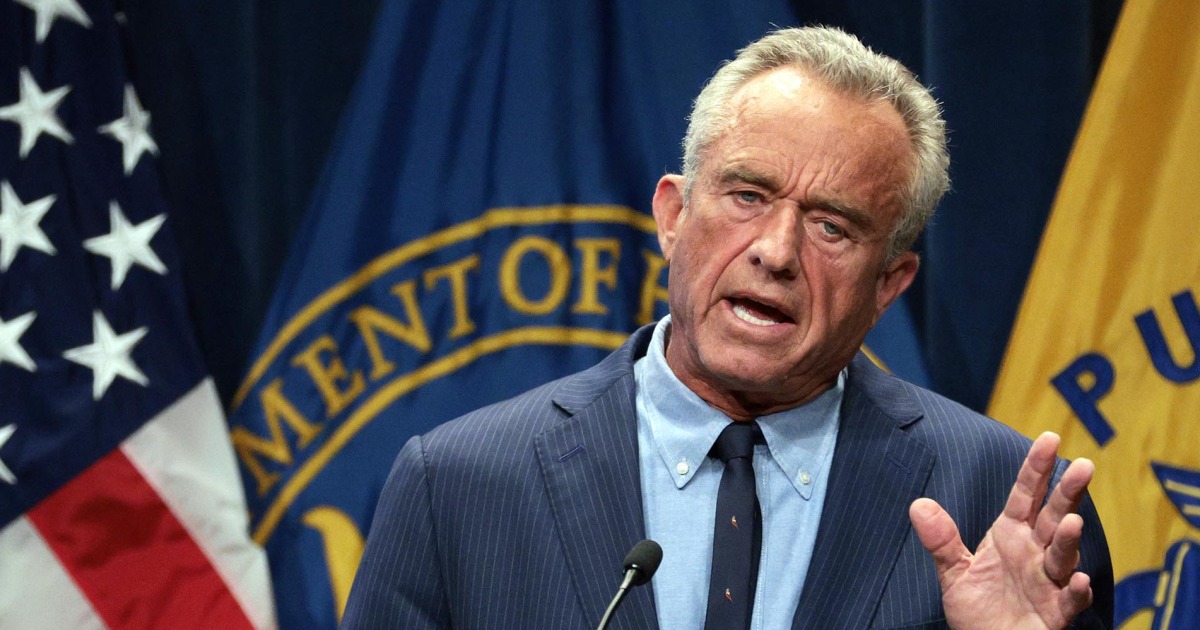ROCHESTER — Last week, the U.S. Department of Health and Human Services announced the latest figures on the prevalence of autism among U.
S. children — and the department's plan to "have answers by September" as to the condition's cause. During an April 16 news conference, HHS Sec.

Robert F. Kennedy Jr. called autism "preventable," an "epidemic" and insinuated that an "environmental toxin" could cause the condition.
ADVERTISEMENT It's a message that is incongruent with the experiences of autism service providers and advocates in the Rochester area. "We don't want them looked at as, 'They'll never be potty trained, they'll never go to a dance, they'll never play baseball,'" said Sara Seegmiller, board president for the Rochester-based RT Autism Awareness Foundation. "Truly, that is old thinking.
...
We've come so far." Autism spectrum disorder is a neurodevelopmental disorder that affects one's social communication skills. The two major diagnostic criteria for autism are issues with social communication skills and repetitive behavior or thoughts, said Leslie Chaplin, chief clinical officer at the Minnesota Autism Center, which has locations in Rochester, Red Wing, Austin and Medford.
"It is a spectrum," Chaplin said of autism symptoms. "It is unique to each individual. There's a number of factors that we assess for and we look at before we would even give the diagnosis.
" Because autism has a wide spectrum of symptoms, some people with autism need lots of support from caregivers — and others may not need accommodations at all. "When you go to extremes and you don't represent the spectrum, I think that's a major disservice," said Elizabeth Walby, RT Autism Awareness Foundation's executive director. The newly released report from the Centers for Disease Control and Prevention states that, as of 2022, the prevalence of autism diagnoses among 8-year-old children is 1 in 31, an increase from 2020.
The survey collected information on 8-year-olds and 4-year-olds across 16 sites, including one in Minnesota. ADVERTISEMENT As HHS focuses on studying autism, Seegmiller said she thinks doing more research is great. "My hope is that they look at the research that has already been done and not just discredit it," Seegmiller said.
“There’s always room for growth, right?” Multiple times in Kennedy's speech and the HHS news release, the prevalence of autism diagnoses is called an epidemic. "President (Donald) Trump has tasked me with identifying the root causes of the childhood chronic disease epidemic — including autism," Kennedy said. To Chaplin, autism's prevalence "has absolutely no resemblance to an epidemic.
" She said the increase in diagnoses comes from better knowledge around diagnosing autism. "We're really just catching it more often, and we're catching it earlier," Chaplin said. "Early intervention is one of the number one factors in being able to grow and develop beyond your current level.
" In response to Kennedy's comments, the Autism Society of Minnesota said in a statement it "unequivocally rejects" the health secretary's framing of autism. ADVERTISEMENT "Referring to autism as something to be eradicated is not only scientifically inaccurate — it is dangerous," the society said. For Seegmiller, who is also a health care worker and whose adult son has autism, said she does not like the term "epidemic.
" "It makes it sound like, 'Hey, if you hang around my son, you may get it,'" Seegmiller said. “It’s just so negative right now that it actually kind of breaks my heart.” The increase in autism diagnoses, Chaplin said, can be seen as a call to action.
“I think the call to action is really about being able to make sure we have a system of support, whether that’s through medical or behavioral health and treatment ...
through the entire lifespan,” she said. "These are people, children, families who are growing and learning in our world, and we need to make sure that our world is a place that's socially acceptable and adaptable for everybody.” Minnesota Autism Center’s role in that support system is providing services for kids and teens who are medically excused from school so they can receive skills-based treatment.
At the Rochester center, 16 youth currently spend half days or full days at MAC, sometimes working one-on-one with a staff member or interacting with others in a group setting. “Our goal is always going to be to get them integrated back into school, but there’s some kind of deficit in functioning that’s making it really difficult for them to be able to learn while they’re there,” Chaplin said. ADVERTISEMENT When those youth transition back into school, districts like Rochester Public Schools assess each student’s needs and make plans for accommodations, said Hilary Clark, an autism and behavior instructional coach at RPS.
About 500 students in the RPS network have a primary disability of autism. “We have some students that are very independent and ..
. may only need support in social communication or social interaction,” Clark said. “We have some students that have more intensive needs, so supports could look like speech services, adapted class, occupational therapy, physical therapy.
” For the RT Autism Awareness Foundation, its supportive work often focuses around socialization and fighting isolation. “What we’re trying to do in our organization is build opportunities for connection — families connecting, individuals connecting,” Walby said. “If you’re dealing with all that comes with a diagnosis on your own, it can be very challenging and very isolating.
” Those efforts include the CARES program, a 12-week program to help guide caregivers of a child with a recent autism diagnosis, and the monthly Coffee Club for autistic adults. Seegmiller oversees the club. “It’s been a nice thing to look at that over-18 population that there just aren’t as many programs in the community for,” Seegmiller said.
ADVERTISEMENT.
Health

RFK Jr. calls autism an ‘epidemic.’ That’s not how Rochester-area advocates, providers see it

Those who work with children with autism say the recent increase in diagnoses comes from better screening for — and wider knowledge of — the disorder.















